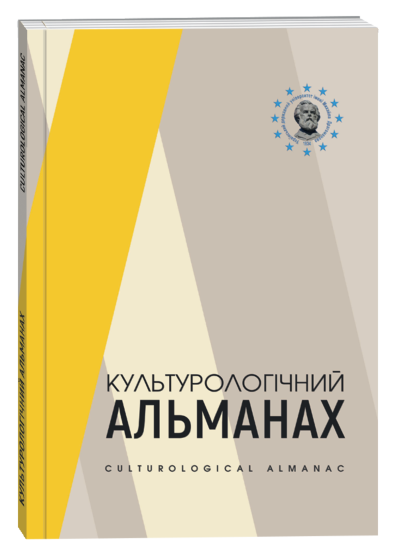WAR ETHICS
DOI:
https://doi.org/10.31392/cult.alm.2023.2.16Keywords:
war, peace, violence, justice, conscience, freedom, honesty, kindness, chivalry, companionship, treachery.Abstract
From the renowned Sumerian king Gilgamesh to the present day, wars have remained constant companions in human life. It's difficult to identify a period in world history without some form of military conflict, whether minor or major. People have not only cultivated land, herded animals, engaged in pottery, hunting, or fishing, built houses, and arranged their households, but they have also waged wars. The reasons for wars are diverse. Some were drawn to foreign lands, others were driven by the desire to plunder more successful and affluent nations, while others sought to subjugate their neighbors to live off their resources... In doing so, they looted, destroyed life infrastructure, ravaged material and spiritual values, killed each other, maimed, captured, turned into slaves – in short, they waged wars. Initiators of wars – those who seize foreign lands, forcibly acquire property, material, and spiritual assets – have historically been called conquerors, occupiers. Conversely, those who defended, protected someone or something from attack, assault, hostile and dangerous actions were called defenders. The modern war conducted against Ukraine by the "elder brother" has unveiled the worst, most hideous traits of this criminal ethnicity. Embracing inhuman malice and hatred from their genetic heritage, exponentially reinforced by alcoholic substances and deceitful ideology, Russians have quite literally "declassified" and exposed to the world their true malevolent essence as destroyers, killers, occupiers, and aggressors. Human qualities are not inherent in them. Throughout history, Ukrainians have fought for their own freedom. In this struggle, the highest and noblest moralethical qualities have flourished, with which they now defend their Homeland, people, and culture. This truth should be known to everyone. It should prevail in schools and higher education institutions, in culture, in the spiritual life of each person who respects humanity and life, peaceful labor, and justice.
References
Андрущенко, В. (2020). Педагогічна Конституція Європи (хроніка відкладеного проєкту). Філософський альманах. Київ : Видавництво Людмила ; Франкфурт-на-Майні.
Панафідін, І. (2014). Еволюція ідеї справедливої війни в контексті теорії вічного миру (соціально-філософський аналіз) : дисертація канд. філософ. наук : 09.00.03. Дніпропетровськ.
Смолій, В. А. (Ред.). (2002). Політичний терор і тероризм в Україні. XIX–XX ст.: Історичні нариси. Київ : Наукова думка.
Ряшко, В., & Ряшко, О. (2014). Проблеми війни і миру у «філософії права» Г.В.Ф. Геґеля. Вісник Національного університету «Львівська політехніка». № 801. С. 97–102.
Бистрицький, Є. (2020). Культура і комунікація в глобальному світі. Київ. Дух і літера.
Ващенко, Г. (1999). Виховання характеру і волі. Київ.
Огородник, С. (2022). Окупанти допитували на кухні господарів, а їхні подільники нишпорили і забирали цінні речі. URL: https://www.chesno.org/post/5411/.
Сас, П.М. (2005). Запорозьких козаків система цінностей. Енциклопедія історії України: Т. 3: Е-Й / Редкол.: В. А. Смолій (голова) та ін. НАН України. Інститут історії України. Київ : В-во «Наукова думка». URL: http://www. history.org.ua/?termin=Zaporozkykh_kozakiv_systema_cinnostey.
Главком.ua. (2023). URL: https://glavcom.ua.
Гоголь, М. (2017). Тарас Бульба. Львів : Апріорі.
Котляревський, І. (2018). Енеїда. Наталка Полтавка. Київ : Знання.








